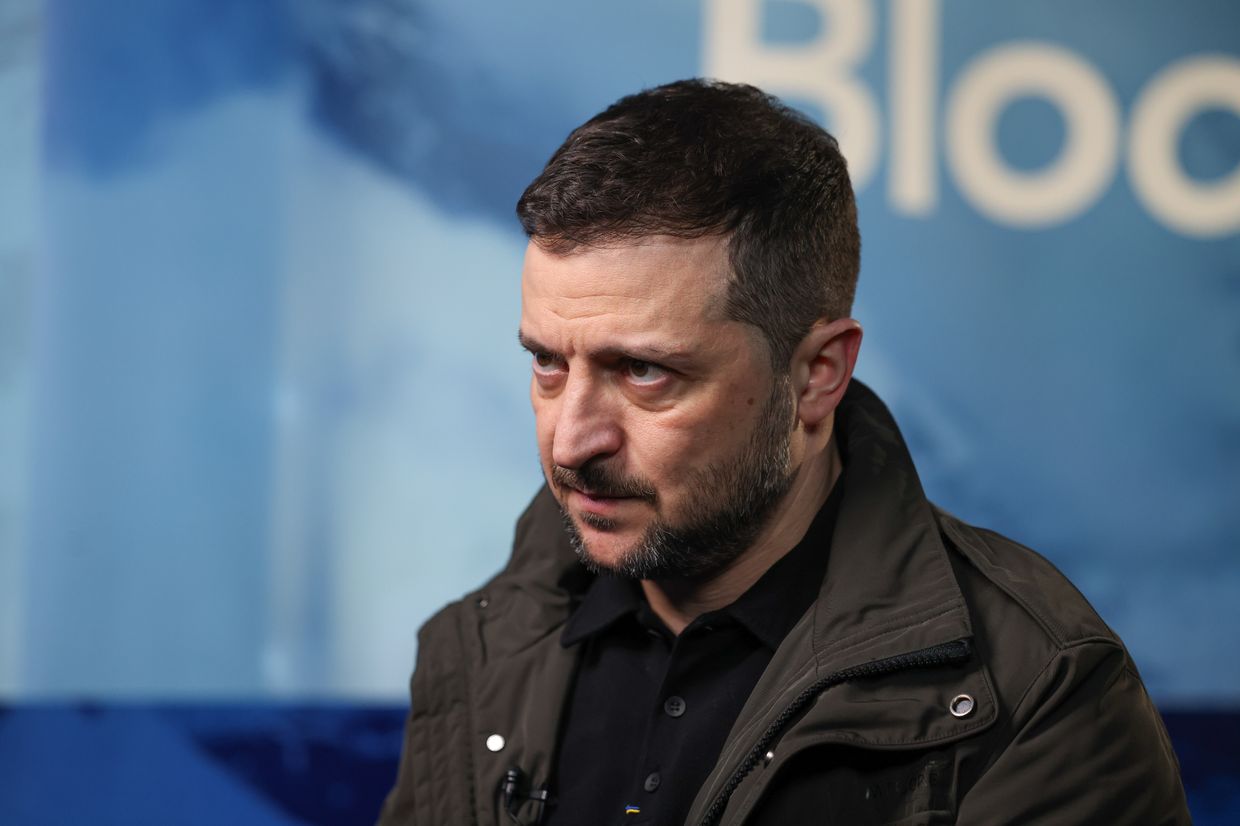‘Nuclear blackmail:’ Russia strikes Chornobyl as world leaders gather for Munich Security Conference

Russia attacked Ukraine’s decommissioned Chornobyl nuclear power plant on Feb. 14 just as world leaders gathered for the Munich Security Conference — in Moscow’s latest nuclear threat against Kyiv.
Videos shared by Ukrainian President Volodymyr Zelensky show a drone breaking through Chornobyl’s “sarcophagus,” an international project to cover reactor number four that exploded in 1986 in the most devastating nuclear disaster in history.
Zelensky called the drone attack “a terrorist threat to the whole world.” Without going into details about the attack, a representative for the Chornobyl station called the strike an “act of terror by Russia.”
The strike is likely more signaling on Russia’s part. The Munich Security Conference, historically a show of force by NATO, started on Feb. 14. Andriy Yermak, the head of the president’s office, wrote, “The atmosphere (at Munich) right now is such that everyone in Munich is very angry because of this news.”
Images of the attack released by Ukraine’s security service show that Russia used a long-range Shahed attack drone in the strike, but that damage was limited. The president said that following the attack, higher radiation levels were not detected.
“It's a tiny warhead in the drone,” says Fabian Hoffman, a missile expert at the Oslo Nuclear Project, of the explosion visible in photos.
“(Russia) very much knew that this would absolutely not penetrate the meter-thick concrete walls surrounding the reactor, so they knew there would be no radiation leakage,” he said.
The sarcophagus surrounding the derelict reactor is not the only defense. “The blocks also have this concrete shell that gets in the way of some kind of large-scale projection of radioactive waste,” said Olena Lapenko, an energy security specialist at the Dixi Group, a Kyiv-based energy think tank.
“We understand, and they understand, that a single drone is not going to get through to the center of the nuclear block.”
As negotiations to end the war pick up steam, Russia may be flexing its muscles.
U.S. President Donald Trump spoke with Russian President Vladimir Putin and Zelensky on the phone this week, saying peace talks would start "immediately" and that a ceasefire was in the "not too distant future."
Trump’s Defense Secretary Pete Hegseth also came out this week saying that both a return to Ukraine’s 2014 borders and NATO accession were unrealistic. The statement caused alarm that the U.S. was making concessions to Russia before negotiations had even begun.
Zelensky connected the attack to negotiations, saying, “Russia carries out such attacks against Ukrainian infrastructure and our cities every night. Russia continues to increase its army. Russia does not change its crazy anti-human state rhetoric. This means that Putin is definitely not preparing for negotiations.”
“There’s this wave of information regarding negotiations. I would not rule out that this (attack) is to put pressure on Ukraine,” says Lapenko, who called the attack “a new wave of nuclear blackmail.”

Moscow has deployed various forms of nuclear saber-rattling since the start of the full-scale invasion. It has repeatedly threatened to use nuclear weapons to deter Ukraine’s allies from assisting it further. In the early days of the invasion, Russian troops occupied the Zaporizhzhia nuclear power plant — Europe’s largest nuclear facility — effectively using it as a military base.
After nearly three years of campaigns against Ukraine’s energy system, Russia also began targeting the infrastructure near the country’s nuclear power plants last year, putting their connection with the energy grid at risk.
While Ukraine has gotten better at protecting its energy facilities since the attacks began, the strikes against nuclear-connected infrastructure represent a “change in tactics,” says Lapenko.
As Russia struggles with ramping up its missile attacks against Ukraine, it may be looking for any avenue it can to ratchet up the pressure on Kyiv, said Hoffman.
“From a Russian perspective, you really want to bring home this message that Russia still has tools to increase the suffering of the Ukrainian people if they don't settle this conflict soon.”











